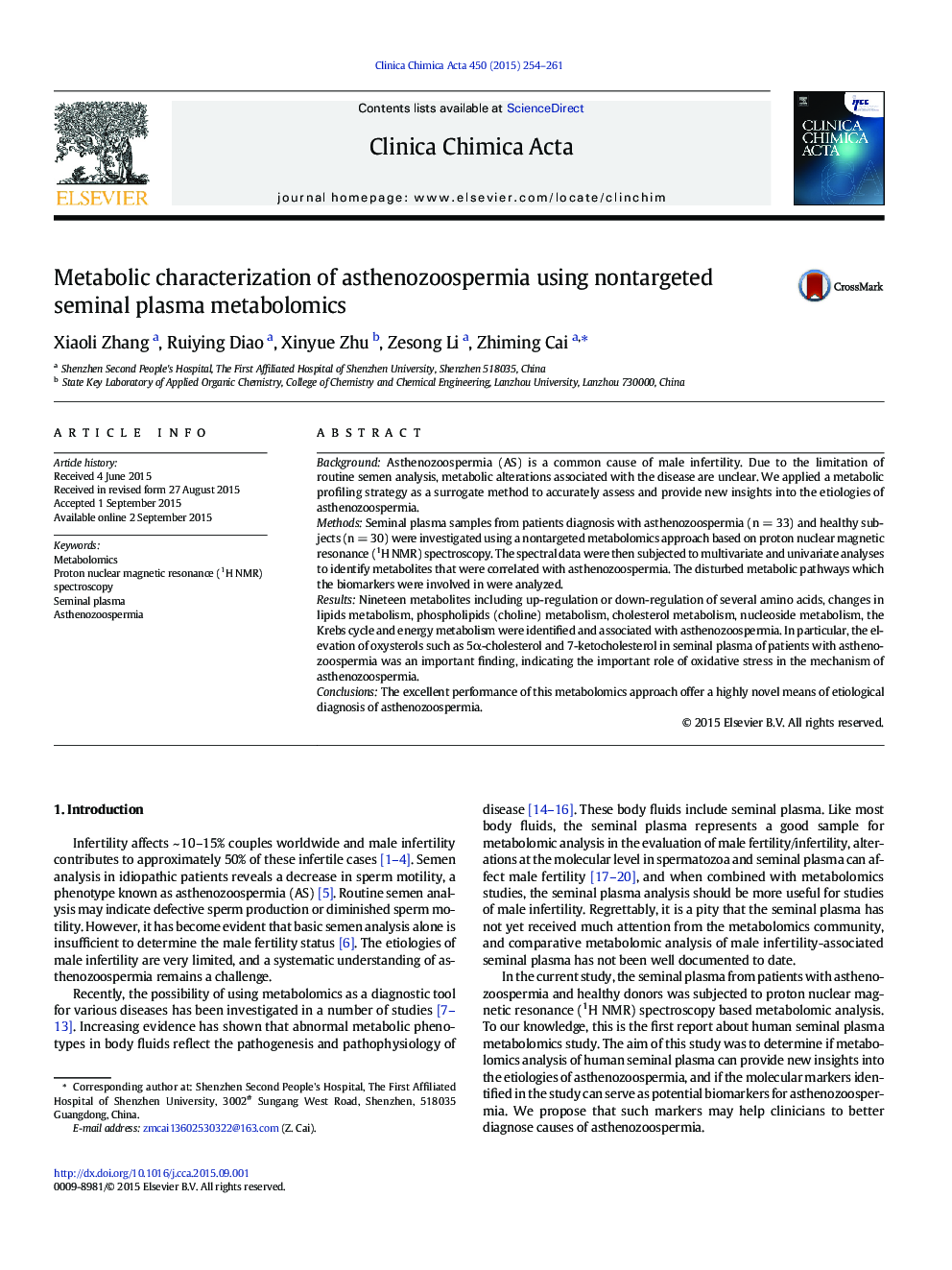| Article ID | Journal | Published Year | Pages | File Type |
|---|---|---|---|---|
| 1965232 | Clinica Chimica Acta | 2015 | 8 Pages |
•Nontargeted seminal plasma metabolomics was used to access asthenozoospermia.•The study makes up the limitation of routine semen analysis.•Oxidative stress was one of the underlying mechanisms of asthenozoospermia.•The study helps clinicians for etiological diagnosis and treatment of the disease.
BackgroundAsthenozoospermia (AS) is a common cause of male infertility. Due to the limitation of routine semen analysis, metabolic alterations associated with the disease are unclear. We applied a metabolic profiling strategy as a surrogate method to accurately assess and provide new insights into the etiologies of asthenozoospermia.MethodsSeminal plasma samples from patients diagnosis with asthenozoospermia (n = 33) and healthy subjects (n = 30) were investigated using a nontargeted metabolomics approach based on proton nuclear magnetic resonance (1H NMR) spectroscopy. The spectral data were then subjected to multivariate and univariate analyses to identify metabolites that were correlated with asthenozoospermia. The disturbed metabolic pathways which the biomarkers were involved in were analyzed.ResultsNineteen metabolites including up-regulation or down-regulation of several amino acids, changes in lipids metabolism, phospholipids (choline) metabolism, cholesterol metabolism, nucleoside metabolism, the Krebs cycle and energy metabolism were identified and associated with asthenozoospermia. In particular, the elevation of oxysterols such as 5α-cholesterol and 7-ketocholesterol in seminal plasma of patients with asthenozoospermia was an important finding, indicating the important role of oxidative stress in the mechanism of asthenozoospermia.ConclusionsThe excellent performance of this metabolomics approach offer a highly novel means of etiological diagnosis of asthenozoospermia.
Graphical abstractFigure optionsDownload full-size imageDownload as PowerPoint slide
